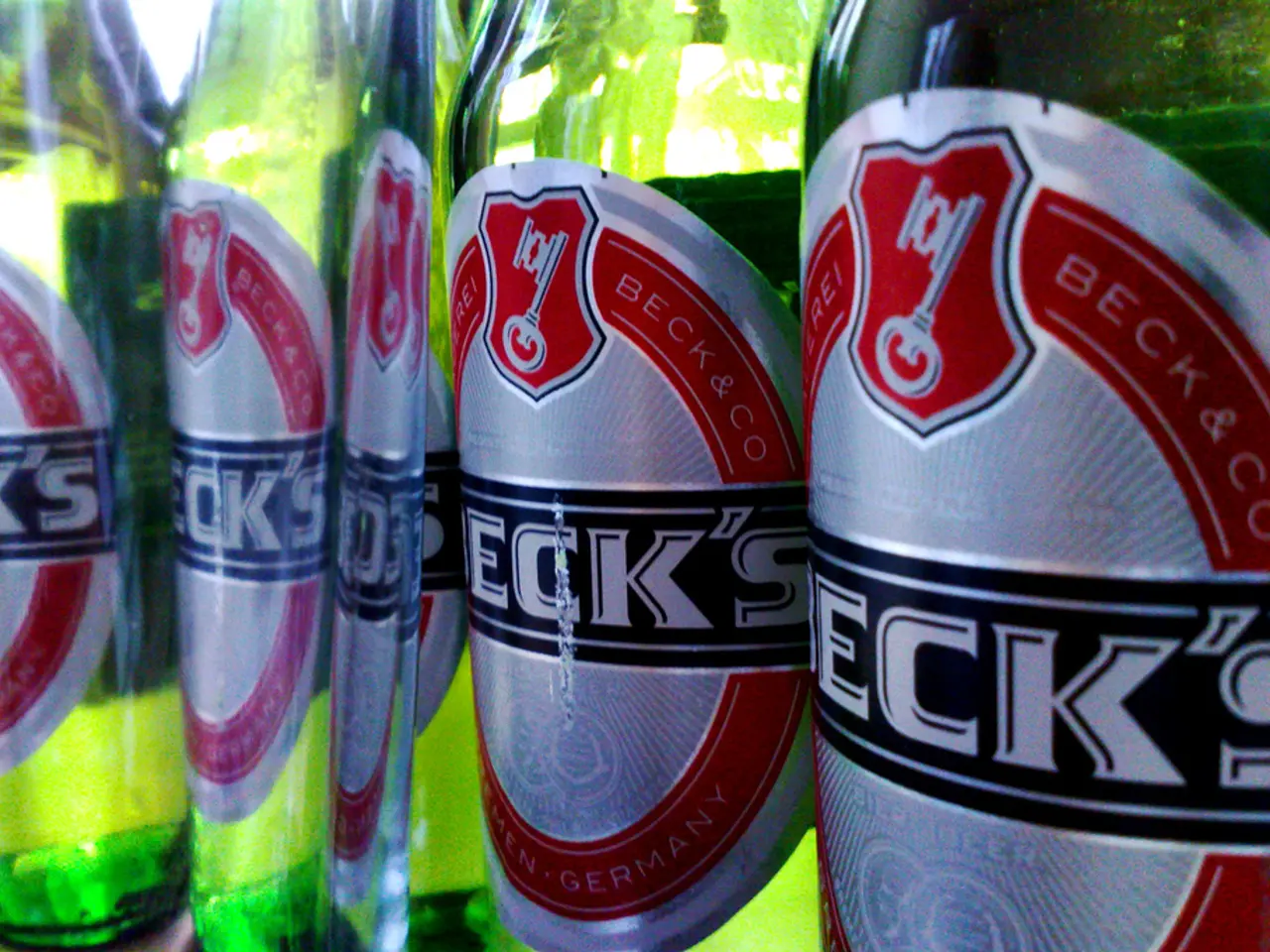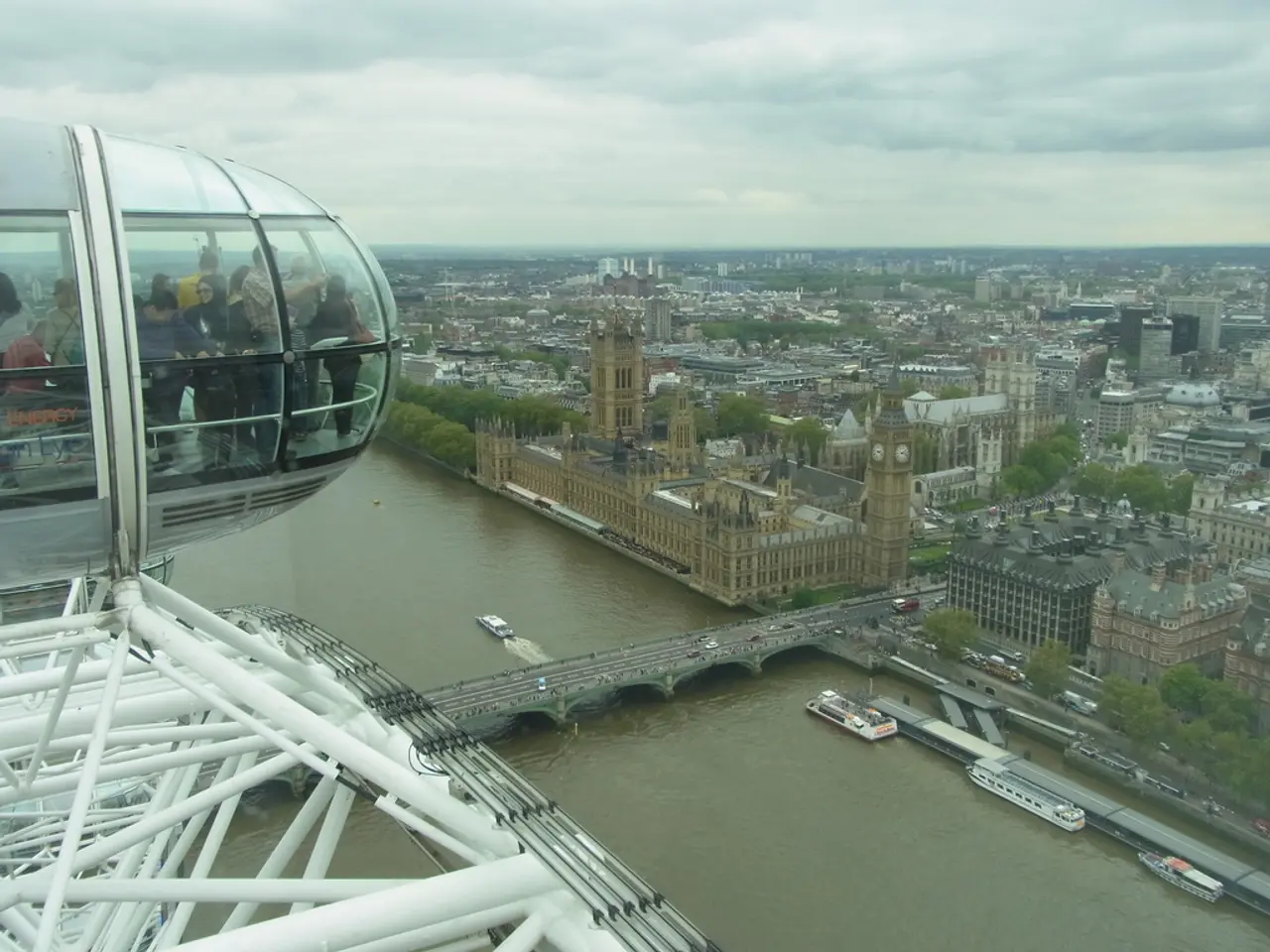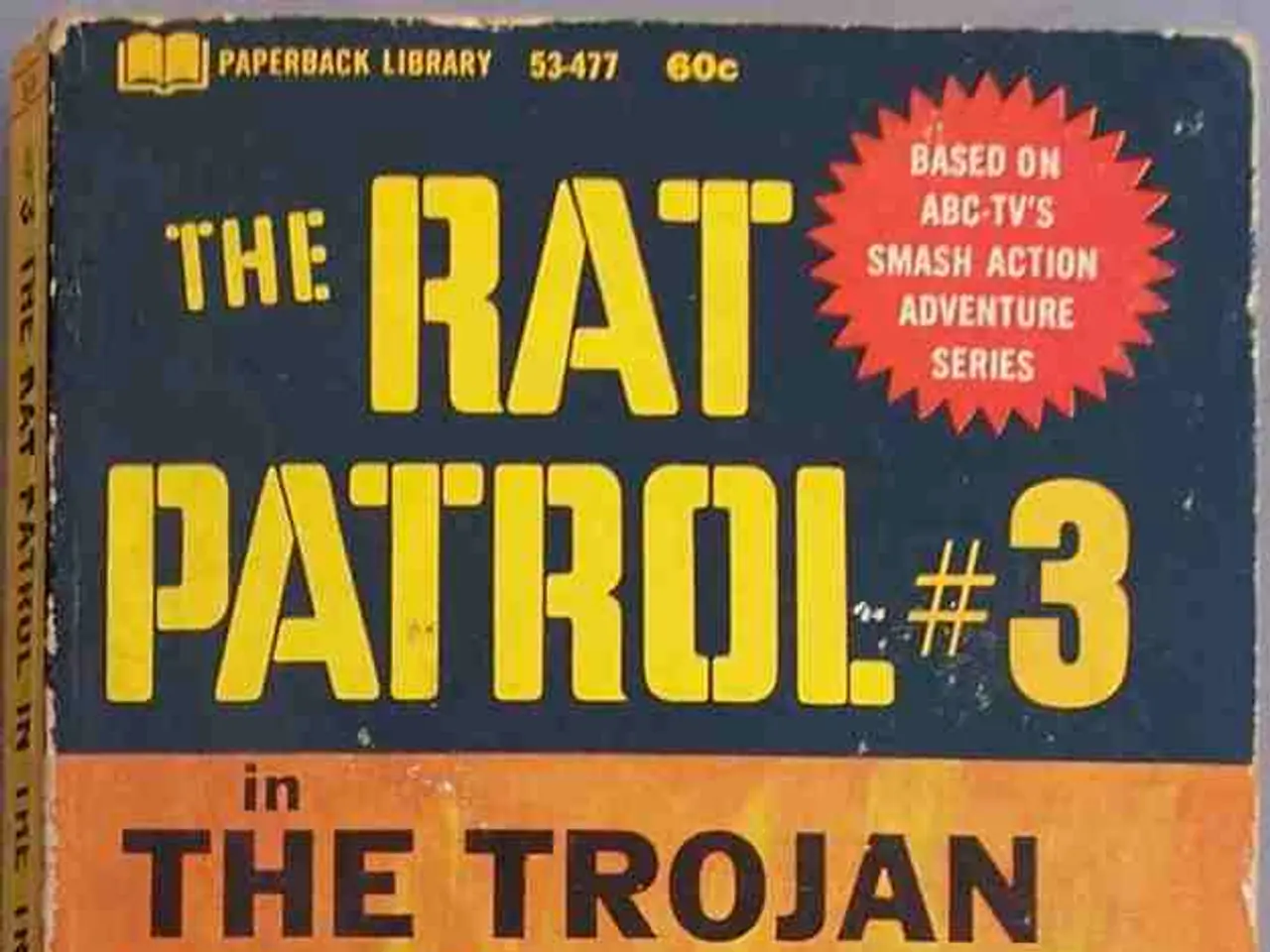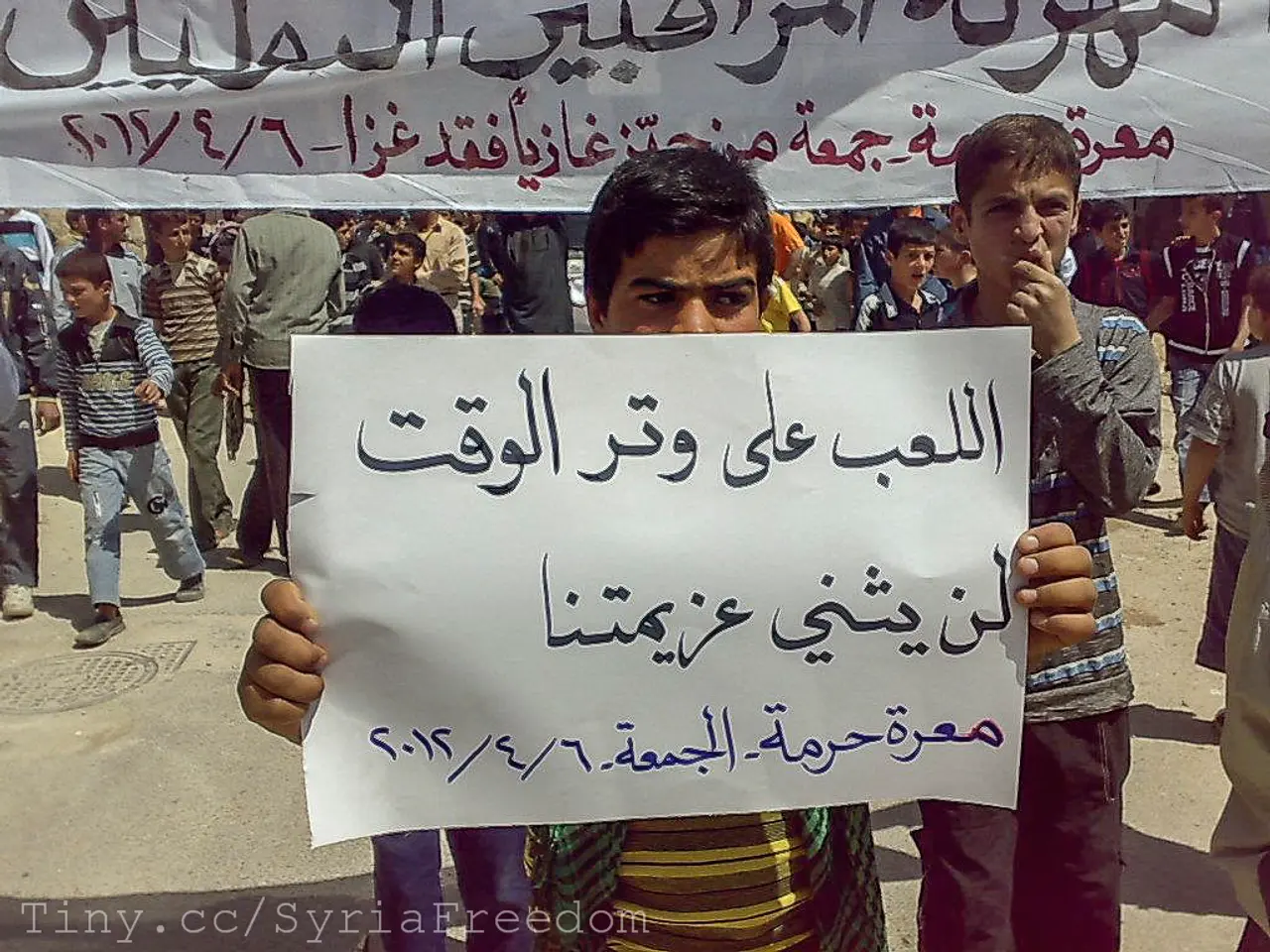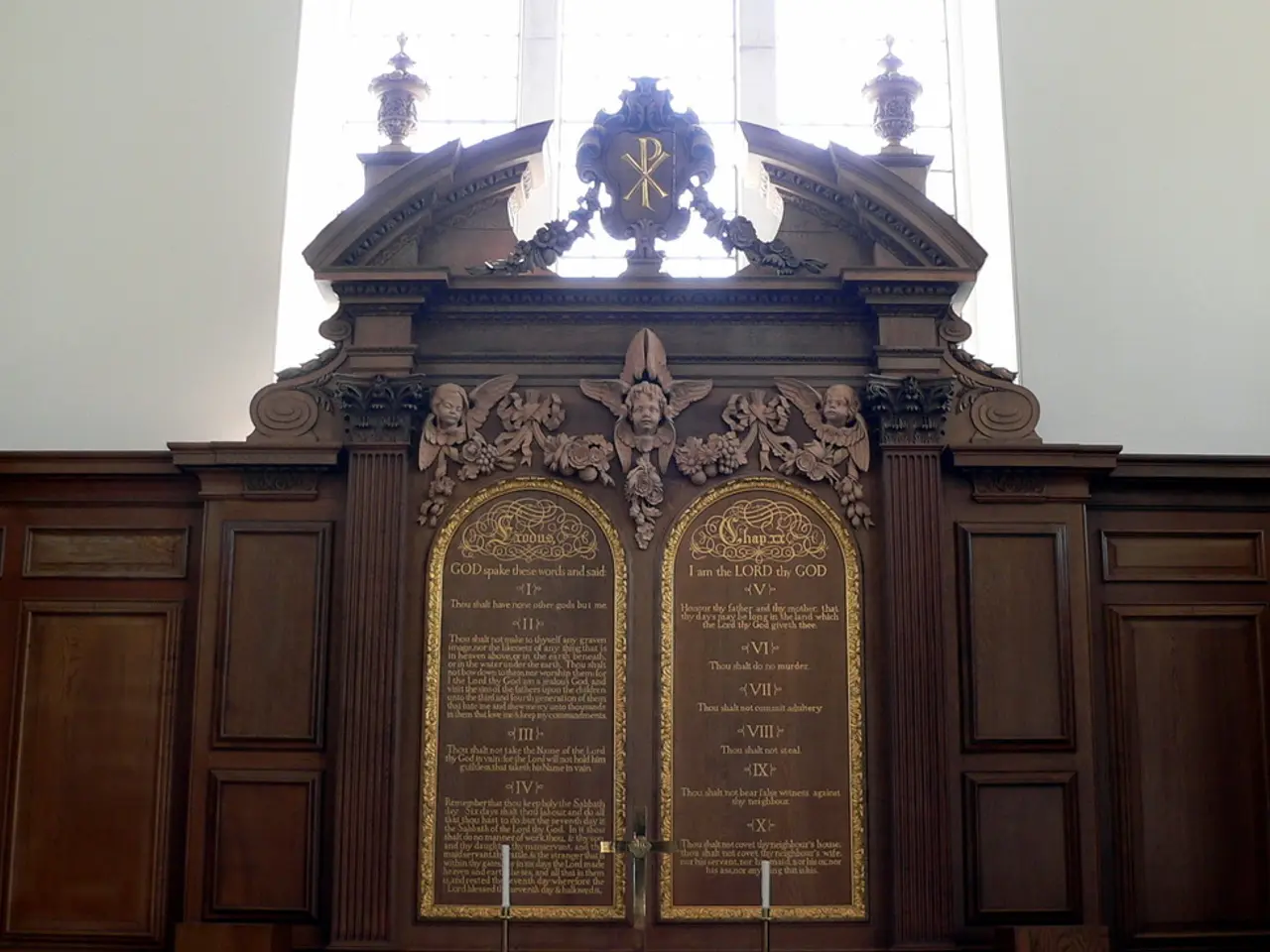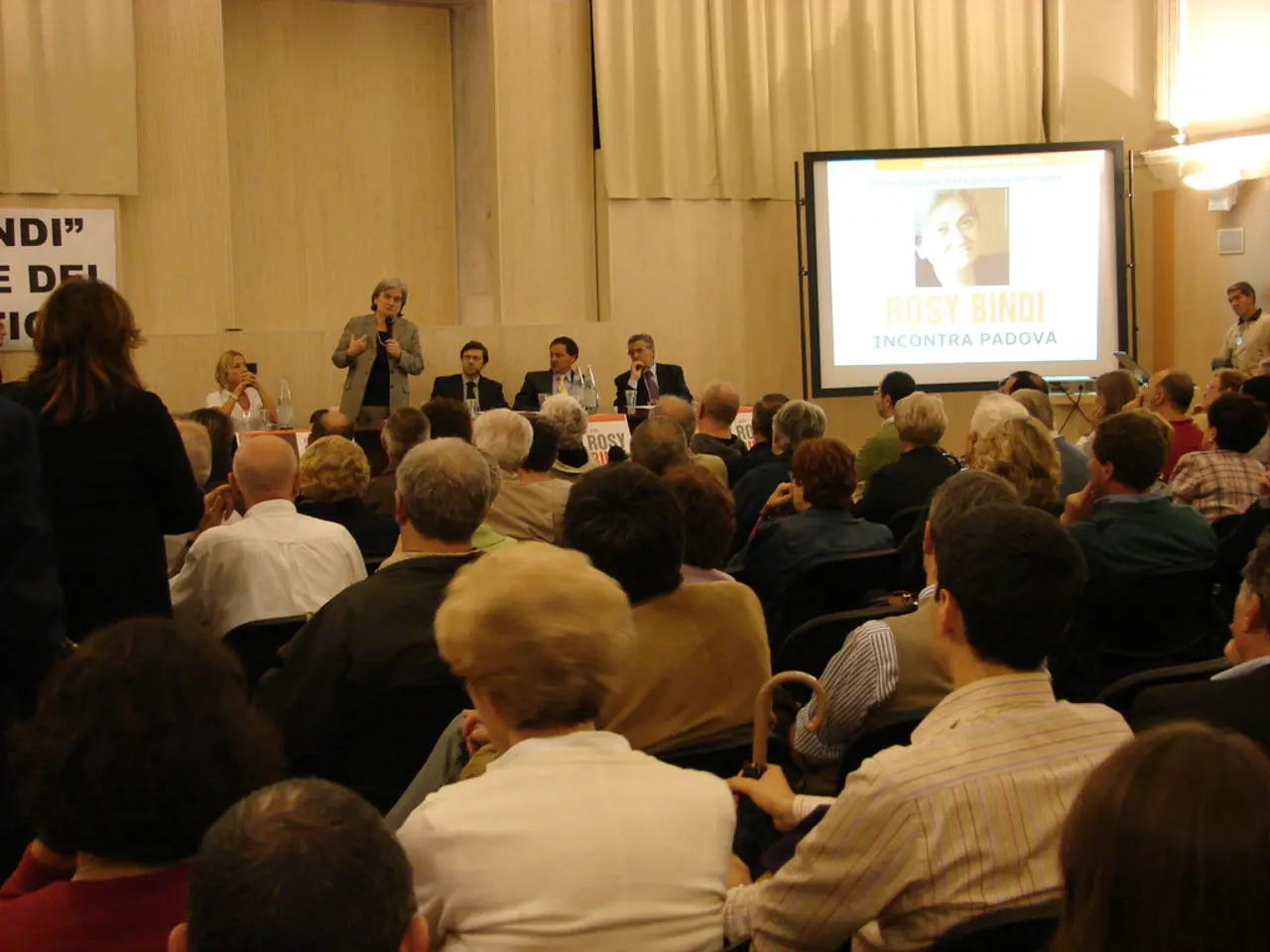Unity Milestone: Greens Commemorate Three Decades of Collective Action
Greens Party Celebrates 30th Anniversary of Unifying Merger
On May 14, 1993, the Greens party in Leipzig celebrated a significant milestone – the 30th anniversary of their merger between Bündnis 90 (East Germany) and the Greens (West Germany). The occasion was marked by a gathering of party leaders, past and present, including Vice-Chancellor Robert Habeck, Foreign Minister Annalena Baerbock, Bundestag Vice-President Katrin Göring-Eckardt, and Federal Environment Minister Steffi Lemke.
During the event, Katja Meier, the Saxon Green politician, emphasized the importance of overall support for the Greens in the East, considering the upcoming state elections in Thuringia, Saxony, and Brandenburg next year. She called for more support for the Greens in the East, highlighting the potential for the party to make a positive impact in the region.
Meier also stated that the federal election won't be won in the East, but it can be lost. This sentiment underscores the critical role the party plays in the region and the need for continued support to maintain a strong presence.
The merger, which resulted in the formation of Alliance 90/The Greens, combined the East German grassroots coalition Alliance 90, including East German Greens, with the West German Green Party. This union enabled the newly formed party to secure national representation in the 1994 elections and later, in 1998, to enter national government as a junior coalition partner led by SPD's Gerhard Schröder.
Historically, the West German Greens had emerged in the early 1980s amid internal tensions between pragmatists ("Realos"), who supported cooperation with the Social Democratic Party (SPD), and fundamentalists ("Fundis"), who opposed compromises. The party achieved early success by entering a coalition government in Hesse in 1985 and winning 8.3% of the vote in 1987, in part due to anti-nuclear sentiment following the 1986 Chernobyl disaster.
In East Germany, a Green Party opposing reunification was established in 1989. For the first all-German elections in 1990, East German Greens joined with Alliance 90, winning seats, while the West German Greens failed to surpass the 5% voter threshold and were excluded from parliament. The 1993 merger resolved this division, creating a unified Green party across Germany.
The merger's impact on the Green Party was significant: it broadened the party's base geographically and politically, enabling it to become a major political force in Germany. Over subsequent decades, Alliance 90/The Greens have influenced German politics notably on environmental policies, social issues, and coalition governance, maintaining parliamentary presence even amid electoral setbacks affecting other coalition members.
Robert Habeck, Vice-Chancellor and former federal chairman of the Greens, warned against putting people into a political grid based on their regional residence. He stated that change in Germany is happening at least not at a slower pace, perhaps even faster, in the eastern federal states. Economics Minister Habeck also emphasized that there are no inherent mental differences in the present among people.
The Greens party in Leipzig discussed the themes of their origins and what unites them during their 30th anniversary celebration. They aimed to "break down barriers in minds and hearts" and to accept the new party friends "with respect and partnership" through their merger. Former party members Werner Schulz and Antje Vollmer, who died in November 2022 and March of this year, were remembered during the event. Nouripour described Schulz and Vollmer as outstanding figures in the history of the party.
Marianne Birthler, who negotiated the merger of the party as a Bündnis 90 representative 30 years ago, was a guest at the event. The Greens party is still officially called Bündnis 90/Die Grünen. The anniversary celebration was a poignant reminder of the party's rich history and its ongoing commitment to shaping a greener, more equitable future for Germany.
- The Greens Party, currently in aUnifying merger for 30 years now, has started discussing the themes of policy-and-legislation and general-news during their anniversary celebration, aiming to advocate for more support in the East, particularly in light of the upcoming state elections, due to the potential for positive impact in the region.
- On the occasion of the 30th anniversary of the Greens Party's unifying merger, Katja Meier, a Saxon Green politician, emphasized the importance of political support for the party, painting a picture where the federal election won't be won in the East but can be lost, highlighting the critical role the party plays and the need for continued support to maintain a strong presence.
